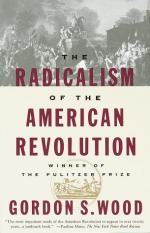
|
| Name: _________________________ | Period: ___________________ |
This quiz consists of 5 multiple choice and 5 short answer questions through Part 3, Chapter 16.
Multiple Choice Questions
1. What kinds of laws were proposed in colonial America to curb spending?
(a) Speculative laws.
(b) Pecuniary laws.
(c) Sumptuary laws.
(d) Monetary laws.
2. What was critical to the success of colonial American office holders?
(a) Stable family life.
(b) Personal accountability.
(c) Social respectability.
(d) Freedom from debt.
3. Who strove to undermine the gentry's distinctiveness and privileges by emphasizing their similarity to common people?
(a) William Drayton.
(b) Abraham Bishop.
(c) George Warner.
(d) Matthew Lyon.
4. At the middle of the 18th century, what did many revolutionary leaders feel the colonies still needed?
(a) A constitutional government.
(b) A standing army.
(c) Monarchial control.
(d) A President.
5. In colonial America, what outweighed the concern for family lineage?
(a) Individual desires of the mother.
(b) Individual desires of the children.
(c) Individual desires of the head of the household.
(d) Individual desires of the father.
Short Answer Questions
1. When did Americans begin to call for the boycotting of British goods?
2. How were domestic servants treated in colonial America as compared to Europe at that same time?
3. When Ben Franklin was a boy, what important man discussed books with him?
4. In colonial America, who was rescued from poverty as a fourteen-year-old boy, only to become one of Virginia's most distinguished leaders?
5. What was the main source of instability and anxiety in revolutionary America?
|
This section contains 273 words (approx. 1 page at 300 words per page) |

|




